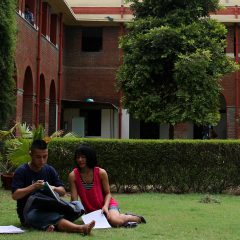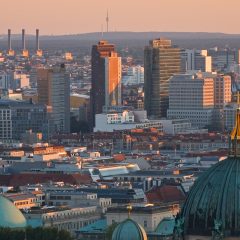India benefits from a billion brains
Clip on a harness, lift your legs and hurtle down a wire towards the sharp corners of a 15th-century Rajasthani fort. As you whizz, you might have a few niggling doubts. Was the zip-wire serviced by someone who knew what they were doing? Is the safety adviser any good? Who is trained in first aid? Fortunately the staff in Neemrana, a tourist spot some 130km southwest of Delhi, are on the ball. Raj Kumar, the lead instructor of Flying Fox, has an impressive (if not entirely relevant) qualification as a Master of Philosophy in ancient Indian history. “I had planned to do my PhD, but this opportunity came along,” he says. The outfit’s British owner-manager, Jonathan Walter, explains that getting and keeping reliable workers is his greatest headache. The problem is not so much the onerous labour laws but finding skilled people. To deal with foreigners his staff need good English; for Indian customers they need social skills to cajole the reluctant into the walk up the hill. In 2010 India had just over 500,000 civil engineers when it needed nearly four million There is plenty of anecdotal evidence that skilled workers are becoming scarce. The man in charge of building a university, also in Neemrana, says he had extreme difficulty recruiting the ten types of masons he needed to work on his campus. A manager overseeing hotel construction near Delhi’s airport says good plumbers, carpenters and electricians are like gold dust. A survey by the Royal Institution of Chartered […]
Global trade enters new era
Historic news this August, as Russia officially became a member of the World Trade Organisation (WTO) after 20 years of negotiations and debates over preferential treatment for domestic manufacturers. A spate of major deals involving its oil, petrochemical and metals industries no doubt greased its path to WTO accession. Putin has since done something of a diplomatic U-turn and is selling himself as a free-trade pioneer. In advance of hosting an Asia-Pacific Economic Cooperation (APEC) summit in Russia’s east coast city of Vladivostok, he told The Wall Street Journal Asian edition: “The very principle of free trade is undergoing a crisis. We regularly observe recurrences of protectionism and veiled trade wars instead of lifting barriers. It is imperative that we develop common approaches.” Presumably this signifies his intention to start dismantling some of the 55 border barriers, five import restrictions and 23 other protectionist measures Russia initiated in the 2011-12 period. He continued: “Membership in the WTO gives us the ability to participate more broadly in setting the global trade rules – an issue that has been a focus of attention for APEC in the past.” His inclusive vision includes a greater role for regional groupings: in Eastern Europe, a Customs Union and Common Economic Space between the former Soviet republics of Russia, Belarus and Kazakhstan; in return, the US is pushing hard for a Trans-Pacific Partnership. State role in credit insurance Europe is also looking to liberalise trade restrictions, specifically those regarding short-term credit insurance. Currently, EU governments are […]








